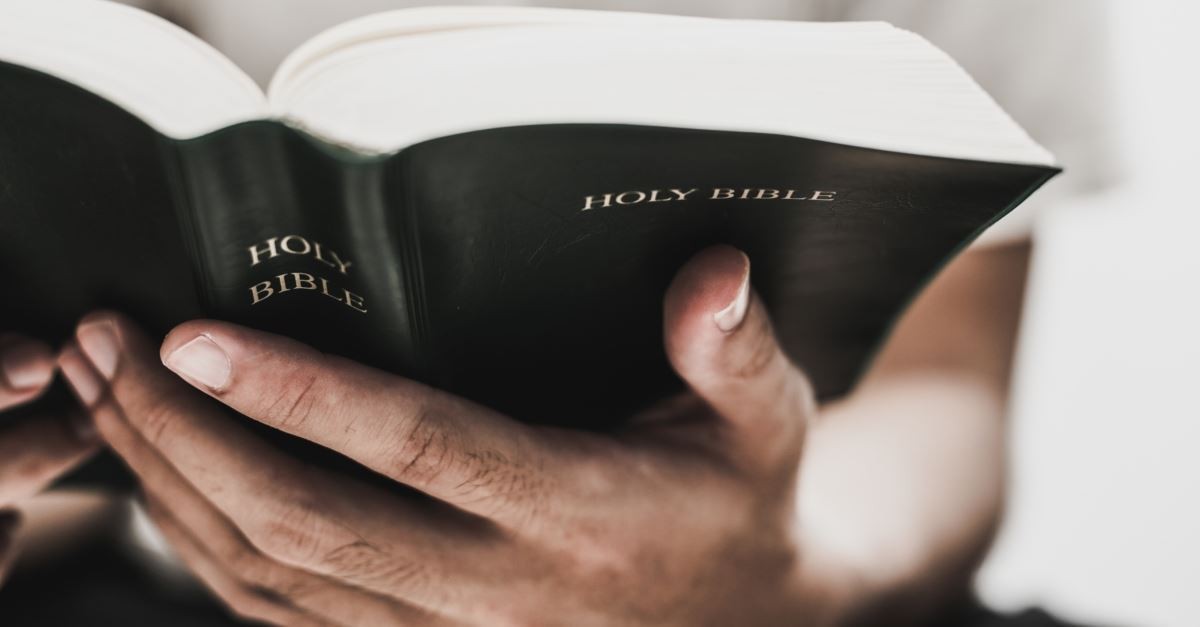
What a nightmare!
Sometimes, that phrase is used metaphorically for a terrifying or unpleasant experience. When my favorite team, the Kansas City Royals, lost 106 out of 162 games in 2023, we could rightly call it a nightmare season. We also use this phrase to talk about someone who is unpleasant.
More often than not, though, we use this phrase to talk about our unpleasant dreams. Some people are afflicted with chronic night terrors. Most of us simply have bad dreams that become difficult to shake. Do they have any deeper meaning? What do we do if we find ourselves battling nightmares? Are there Scripture passages which might help us in working through these?
As we answer those questions, we will begin by looking at the origin of the phrase "nightmare."
Where Did the Phrase "Nightmare" Come From?
When you think of the word "mare," you likely picture a female horse. Or you are really bad at spelling and think of the elected head of your city—the mayor. But if you used the word in Old England (around the 1300-1400s), you would have thought of an evil spirit who walked on people's chests while they slept.
This legend came in various forms from German, Norse, and Swedish folklore. The goblin, they believed, would attempt to suffocate sleepers and thus create bad dreams. The "night" prefix was added to signify that these disturbing experiences occurred during sleep.
Thus, a "nightmare" was originally the nocturnal visit of an evil spirit. Over time, the term evolved to refer more broadly to any distressing dream that occurs during sleep. But this origin reminds us that for many centuries people believed dreams and what happened when we slept, was deeply spiritual. Is a nightmare something that comes from evil spirits? Or is it a psychological experience that points to deeper fears within our psyche? What exactly is a nightmare?

What Are Nightmares?
If you ask those within the field of neuroscience, they will say that dreams are stories and images our mind creates whenever we are sleeping. It is believed that these dreams can be how our brain communicates unconscious desires and wishes and interprets those random signals our brain received throughout the day. It's a way of storing and processing information. Some even believe that it is our brain's way of doing psychotherapy.
Because the phrase itself comes after the Bible and comes from Germanic folklore, the phrase "nightmares" will not appear in the Bible. However, there are dreams and visions throughout the Bible. And God sometimes used dreams to communicate with people—especially His prophets. There are also times when God used dreams to speak to pagan leaders.
Some, perhaps influenced by the origins of the concept of a nightmare, believe that they are times when the demonic are given opportunity to capture our minds. However, there is no instance of this occurrence in the Bible. The predominant theme is that God gives dreams—even if they are disturbing.
Personally, I believe it is God using a physical process. At times, he will use a nightmare to communicate our own thoughts and fears to us. Perhaps he will break through to warn us of something in the future. And sometimes, a dream is just a dream. If we have a pattern of distressing dreams, it is likely an indicator that something is going on in our life. Dreams/Nightmares are a little like our dashboard lights. Sometimes, they mean nothing. Often, it is an indicator of something going on under the hood.

7 Scriptures to Help with Better Sleep
Before giving a list of these Scriptures, explaining that Scripture is not a talisman might be helpful. A talisman is an object thought to possess magical properties to bring good luck to the possessor and to offer protection from harm or evil. If you were afraid of a mare (or nightmare) coming to disturb your sleep, you might wear a necklace thought to ward off evil spirits. Sometimes, we can treat Scripture as if it's a talisman.
Having said that, meditating upon God's Word and rehearsing the truths of God are calming. They can help to quiet our anxiety and place without our hearts a quiet trust. This can calm the internal storm in such a way that our experience of bad dreams is helped. Here are a few passages to meditate upon that might help with sleep.

1. Psalm 4:8 (NIV)
"In peace I will lie down and sleep, for you alone, LORD, make me dwell in safety."
This verse is a wonderful reminder of God's protective presence. It encourages us to rest, knowing that we are safe in the Lord's care. Here, David was able to lie down in peace because things were well with his soul. Sleep is an act of trust.
Photo credit: ©ChristianChan

2. 2 Timothy 1:7 (NKJV)
"For God has not given us a spirit of fear, but of power and of love and of a sound mind."
It is believed that Timothy, a young minister, battled anxiety with the prospect of the ministry which was placed upon him. Here, Paul reminds Timothy of the Spirit which was given to him. An anxious fear is not something which comes to us from God. Instead, God empowers us with love and a sound mind. These are the very tools we can use to combat anxiety and nightmares.
If you use this verse like a cudgel to beat yourself into restful sleep, it will likely be counter-productive. It wasn't meant to whip Timothy into shape but to encourage him. Through the Spirit, you have what it takes.
Photo credit: ©Getty Images/Adene Sanchez

3. Psalm 91:5-6 (ESV)
"You will not fear the terror of the night, nor the arrow that flies by day, nor the pestilence that stalks in darkness, nor the destruction that wastes at noonday."
Psalm 91 is often regarded as a powerful prayer for protection. The theme is that God is a strong fortress; he is our refuge. One of the scariest times for many is the night. The dark can be scary—especially in an era with no street lights and only flickering lamps to guide through the darkness. Here, the psalmist speaks of God's protection even in the dark.

4. Proverbs 3:24 (NIV)
"When you lie down, you will not be afraid; when you lie down, your sleep will be sweet."
This verse offers a promise of peaceful sleep. However, keep in mind the nature of the "promises" in Proverbs. Rather than hard and fast promises, they are better understood as general rules for how the world works. If you lead a life marked by wisdom, your sleep will be peaceful. Our sleep is often disturbed because we go to bed anxious. And we go to bed anxious because troubles are following us. And often, these troubles are hunting us down because of a lack of integrity—because we have not chosen the path of wisdom. The general principle is: live wisely and you'll sleep well.

5. Isaiah 41:10 (NIV)
"So do not fear, for I am with you; do not be dismayed, for I am your God. I will strengthen you and help you; I will uphold you with my righteous right hand."
Isaiah 41 is written to an exilic community. There are things to fear all around them. Sometimes, we feel this way as we go to sleep. When we fall asleep, we lose control—or rather, we face the cold reality that we are not in control. Meditating upon a verse like Isaiah 41:10 can be a sharp reminder that God is always with us and upholds His children.

6. Psalm 23:4 (KJV)
"Yea, though I walk through the valley of the shadow of death, I will fear no evil: for thou art with me; thy rod and thy staff they comfort me."
This is the verse that even Coolio, the rapper of Gangsta's Paradise fame, has quoted. Most people are familiar with the concept of walking through the valley of the shadow of death. Again, that is what it might feel like as you go to sleep. If you've had a week of terrifying dreams, it can feel like you are walking through a valley of death. This is a reminder that God is with us even there.

7. Philippians 4:6-7 (NIV)
"Do not be anxious about anything, but in every situation, by prayer and petition, with thanksgiving, present your requests to God. And the peace of God, which transcends all understanding, will guard your hearts and your minds in Christ Jesus."
If we combine this verse with one like 1 Peter 5:7, we hear our call to cast all our anxiety upon the Lord. This is what we do as we fall asleep. As we recite all of the things which are worrying us or causing anxiety, we embrace the humility of letting go. As you drift off into sleep, give these things to the Lord.
The ultimate answer to our sleep problem is Christ because Christ is the One who is setting all things right. Our anxieties, the realities that our brain cannot process, our fears, and our need to "watch out for potential trauma" all come as a consequence of the fall. Christ has, and is, overturning the fall.
In his book You're Only Human, Kelly Kapic addresses the spiritual discipline of sleep. He says,
Sleep is a spiritual discipline that daily reminds us of our lack of control. Just as a king is not saved simply by the size of his army or a warrior by his strength alone (Ps. 33:16-18), so sleep reminds us daily that we can't rescue ourselves: we are never strong enough, we never know enough, we never can do enough to eliminate our vulnerability. And so sleep is an act of faith. It requires us to see our finitude as a good part of God's design for us. (Kapic, 217)
As an act of faith, we exercise this discipline through our union with Christ. We lay our head down to rest because we know Christ has completed our work.
Sleep well.
Originally published Monday, 15 April 2024.
